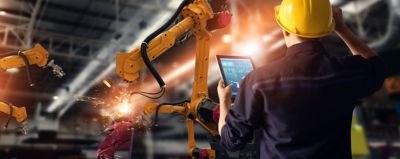Essentially, fixed speed machines are designed to deliver a set level of air pressure. This type is built to run all day, and generally works for companies with a singular application. The motor maintains a continuous speed, which is where the name comes from. They're either 100% on or off.
As you may be aware, electricity consumption makes up around 80% of buying and operating an air compressor. This information is useful when choosing between fixed speed and variable speed drive (VSD) machines.
In addition, there are other things to consider, including environment, industrial air quality specifications, and appropriate air treatment/drying methods.
You'll find our product line is designed to meet a wide range of needs while ensuring a long lifespan. Read on below to learn more about key topics related to cost.
Minimizing energy consumption
As mentioned above, you'll want to pay attention to electricity usage when researching air compressors. Purchasing more efficient equipment will save you money throughout the lifespan of your compressed air setup.
Generally, this reduction in energy is achieved by choosing variable speed drive (VSD) air compressors over fixed speed models. That said, VSD machines have a higher initial investment cost. This deterrent might not seem worth it if you're working with a tight budget.
However, since energy costs fluctuate, VSD air compressors are useful in managing long-term financial planning. In fact, air compressors can make up to 40% of your company's total electricity expenses.
Below you'll find a brief overview of the difference between the two mentioned types of air compressors.
Additional air compressor cost considerations
Of course, the information contained in this article is very general and doesn't speak to specific industries and applications. When choosing equipment for your needs, there's other factors aside from energy consumption.
You'll also want to pay attention to the size of the machine. If you invest in a compressor that's too large or small, you could waste air or overwork your air compressor. In either case, these situations can lead to additional expenses.
When thinking of air compressor cost, it's useful to think of the entire system - beyond just the machine. You'll also want to ensure a proper environment for optimal conditions are met, along with routine maintenance.
The right dryers and filters
Clean, dry air is essential for operating any air compressor. Using the correct dryer is important for removing moisture that can cause contaminants such as microorganisms. This step also protects your compressor's pipes from corrosion.
There are two main dryer types to choose from, refrigerant (fridge), and desiccant (adsorption). For most manufacturing application(s), a fridge dryer is sufficient. They come with energy saving features and reach a sufficient pressure dew point (PDP).
If you work with a sensitive application, you'll want a desiccant dryer to achieve an extremely low PDP. These machines are equipped with automatic electronic control. In either case, you'll benefit from the latest technology. You can read more about dryers in our related articles.
Further, protecting your equipment are the right filters and maintenance schedules. Filters are important for removing the contaminants found in ambient air and those that might be introduced by the compression process.
Adding the right type (particulate, coalescent, or activated charcoal), can both improve your air compressor's lifespan and ensure high quality results.
Of course, with any machinery, performing routine checks are important for maximizing your air compressor's lifespan. We've designed equipment that makes this process easy and intuitive.
We're here to help
We hope this guide makes it easy to understand what to consider when investing in an air compressor. We're here to assist you in choosing the best size and type machine for your needs and budget.
Whether you need to replace an existing air compressor or buying one for the first time, it's important you feel confident in your decision. If you have any additional questions, feel free to get in touch today.
Looking for the right product for your application?
Get tailored advice
Still have questions after reading? Our expert is ready to help you make sense of it all and guide you to the best solution.
Write to an Expert Today – Get the answers you need.





